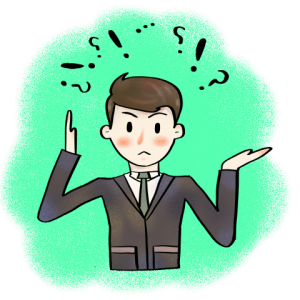
PUNCTUATiON
According to Google– Punctuation is the set of marks used to regulate texts and clarify their meanings, principally by separating or linking words, phrases, and clauses.
বাক্যের অর্থ সুস্পষ্টভাবে প্রকাশ করার জন্য বাক্যের মাঝে ও শেষে বিরতি দিতে হয়। এই বিরতির পরিমাণ প্রয়োজন অনুযায়ী কম-বেশি হয়ে থাকে। আবার বাক্য উচ্চারণের সময় বিভিন্ন আবেগের জন্য উচ্চারণ বিভিন্ন হয়ে থাকে। বাক্যটি লেখার সময় এই বিরতি ও আবেগের ভিন্নতা প্রকাশ করার জন্য যেই চিহ্নগুলো ব্যবহার করা হয়, তাদেরকে বিরাম চিহ্ন বা যতি চিহ্ন বা ছেদ চিহ্ন বলে।
Simple Math:
বাক্যের উচ্চারণ ও অর্থ সহজ ও সঠিক ভাবে বুঝার জন্যে যেসব চিহ্ন বা ছেদ চিহ্নের ব্যবহার করা হয়, তাদেরকে Punctuation বা বিরাম চিহ্ন বলে।
Attention: Punctuation বা বিরাম চিহ্নের যথাযথ ব্যবহার না জানলে বাক্যের অর্থ সঠিক ভাবে বুঝানো যায় না এবং বাক্য শ্রুতিমধুর হয় না। এই জন্যে Punctuation বা বিরাম চিহ্ন সম্বন্ধে আমাদের জ্ঞান থাকা বেশ প্রয়োজন।
FULL STOP
∎∎ Use of Punctuation:Rule-01
∎∎সাধারণত একটি বাক্য শেষ করতে বাক্যের শেষে full stop ব্যবহার করতে হয়।
- I found him asleep.
- I did not wake him up.
- May you succeed in life.
- Help the helpless.
Attention: তবে এক্ষেত্রে মনে রাখতে হবে যে শুধু মাত্র Assertive, Imperative and Optative sentence এর ক্ষেত্রেই বাক্যের শেষে FULL STOP বসে, Interrogative এবং Exclamatory বাক্যের শেষে কিন্তু Full Stop বসে না !
∎∎ Use of Punctuation:Rule-02
∎∎ পদবি এবং দেশের নামের সংক্ষিপ্ত রুপের ক্ষেত্রে Full Stop ব্যবহার করতে হয়।
- M.A.
- B.A.
- M.B.B.S
- The U.S.A.
- The K.S.A.
- The U.A.E
COMMA
∎∎ Use of Punctuation:Rule-03
∎∎ Case of Address বা সম্বোধন পদকে Sentence থেকে আলাদা করতে comma ব্যবহার করতে হয়।
What is case of address?
যখন কাউকে তার নাম বা অন্য কোন পরিচয়ে ডাকা হয় বা সম্বোধন করা হয় তখন ঐ নাম বা পরিচয়টাকেই case of address বা সম্বোধন পদ বলে।
- Boys, Listen to me.
- Sir, May I come in?
- Friend, I need your help.
∎∎ Use of Punctuation: Rule-04
∎∎ Case in apposition এর আগে ও পরে Comma ব্যবহার করতে হয়।
What is case in apposition?
যখন কোন ব্যক্তি বা বস্তুর নাম বা পরিচয় উল্লেখ করার সাথে সাথে ঐ ব্যক্তি বা বস্তু সম্পর্কে extra কোন information দেওয়া হয় তখন ঐ extra information কেই case in apposition বা appositive বলা হয়।
- Hasan, an English Teacher of our school, is very popular with the student.
- Mobile phone, a great wonder of modern science, had changed our lives.
*Mr and Mrs এর পরে (Full Stop)
∎∎ Use of Punctuation: Rule-05
∎∎ তারিখ লেখার ক্ষেত্রে যদি পাশাপাশি দুটি Word অথবা Number থাকে তবে তাদের মাঝে comma বসবে।
- I was born on January 19, 1990.
- We got the victory on December 16, 1971.
- We began working on Friday, May 1, 2020.
NOTE: কিন্তু তারিখ লেখার ক্ষেত্রে word এবং number এর মাঝে কোন comma হবে না ।
- I was born on the 16 December 1990.
- We got the victory on the 16 December 1971.
∎∎ Use of Punctuation: Rule-06
∎∎ বাক্যে যদি একই ধরণের parts of speech দুইয়ের অধিক থাকে তবে Comma বসিয়ে তাদের আলাদা করতে হবে।
- He was a wise, learned and an upright judge.
- A goat, a hen, a duck and a crow also come by.
- You, he and I are present in the meeting.
∎∎ Use of Punctuation: Rule-07
∎∎ Therefore, on the whole, by the way, by the by, in fine, after all, above all, including to, in addition to এ ধরণের connectors বাক্যের মাঝে ব্যবহৃত হলে এদের আগে ও পরে Comma বসবে। আবার অনেক ক্ষেত্রে এদের আগে শুধু comma বসে, পরে ব্যবহার না করলেও হয়।
- I, therefore, pray and hope that you would be kind enough.
- What he said, by the way, is a matter of concern.
- I did a lot of work, in addition to my homework.
NOTE: তবে এরা Sentence এর প্রথমে বসলে সেক্ষেত্রে শুধু মাত্র এদের পরে Comma ব্যবহার করতে হবে-
- By the way, I have something to say.
∎∎ Use of Punctuation : Rule-08
∎∎ Tag question কে Sentence এর বাকি অংশ থেকে আলাদা করতে এদের আগে comma ব্যবহার হয়ে থাকে।
What is tag question?
অনেক ক্ষেত্রে কোন একটা কথা বলার সময় ঐ কথার সাথে আমরা যে অতিরিক্ত প্রশ্ন জুড়ে দেই তাকেই tag question বলে। যেমন আমরা অনেক সময় এমন বলে থাকি যে- তুমি কি ঘুমিয়েছো, ঘুমাও নাই ?
- It’s quite expensive, isn’t it?
- A barking dog seldom bites, does it?
∎∎ Use of Punctuation: Rule-09
∎∎ বাক্যের মাঝে যদি for, So, yet, else, still, এই ৫ টি Co-ordinate Conjunction থাকে তবে তাদের আগে Comma ব্যবহার করতে হবে।
- He has lost his bag, so he is at a stake now.
- I could not come to college, for I was ill.
- I am backdated, yet I am smart in my way.
- She forgot me, still, I love her.
- Leave me, else I will leave you.
∎∎ Use of Punctuation : Rule-10
∎∎ Simple Sentence এর ক্ষেত্রে Subject যেখান থেকে শুরু হবে তার আগে Comma বসবে। আরেকটু সহজ করে বললে- কোন বাক্যে Subject এর আগে যদি অতিরিক্ত কোন কিছু থাকে তবে ঐ অতিরিক্ত অংশের পরে অর্থাৎ Subject এর আগে comma ব্যবহার করতে হবে।
- Seeing the Police, The thief ran away.
- Having opened the door, I found a bunch of flowers.
- Because of my being ill, I was absent in the class.
- In spite of my running fast, I missed the Train.
∎∎ Use of Punctuation: Rule-11
∎∎ Complex Sentence এর ক্ষেত্রে বাক্যের শুরুতে যদি Sub-ordinate Conjunction থাকে তবে ২টি বাক্যের এর মাঝে Comma ব্যবহার করতে হবে। অর্থাৎ ২য় বাক্যের শুরুতে Comma ব্যবহার করতে হবে।
What are sun-ordinate conjunctions?
Sinc, As, Though, Although, If, Unless, While, When
- When the thief saw the police, he ran away.
- When I opened the door, I found nothing.
- As I was ill, I was absent in the class.
- Though I ran fast, I missed the Train.
∎∎ Use of Punctuation: Rule-12
∎∎ চিঠির শেষে Yours faithfully, Yours Sincerely, Yours ever ইত্যাদি Closing এর পরে Comma ব্যবহার করতে হয়।
COLON
∎∎ Use of Punctuation: Rule-13
∎∎ সময় লেখার ক্ষেত্রে ঘন্টা ও মিনিটের মাঝে Colon (:) ব্যবহার করতে হয়।
- 8:30 am,
- 9:30 pm.
Note- তবে সময় কে এভাবেও লেখা হয়- It is 7 O’ clock now
∎∎ Use of Punctuation: Rule-14
∎∎উদাহরন বা গণনা করতে এক এক করে লিখে যাওয়া বা বলে যাওয়ার সময় Colon(:) ব্যবহার করতে হয়।
- Common Nouns are: book, pen, cow, boy, girl etc.
- Asian countries are: Bangladesh, India, Japan, Malaysia etc.
∎∎ Use of Punctuation: Rule-15
∎∎সাধারণত for example, such as, for instance, The following ইত্যাদি phrase গুলোর পরে Colon (:) এবং আগে Comma হবে ।
- You will need some other things too, such as: a rubber, a ruler and a pencil sharpener.
- We have many things to do, for example: obeying parents, studying regularly etc.
∎∎ Use of Punctuation: Rule-16
∎∎Dialogue বা Drama-তে বক্তা ও তার উদ্ধৃতিকে পৃথক করতে Colon (:) বসে।
Kamal: How are you, Jamal?
Jamal: I am fine.
SEMICOLON
∎∎ Use of Punctuation: Rule-17
∎∎However, anyhow, nevertheless, nonetheless, anyway এরা Sentence এর মাঝে ব্যবহার হলে এদের আগে Semicolon এবং পরে comma বসে। তবে এরা Sentence এর প্রথমে ব্যবহার হলে শুধু মাত্র এদের পরে comma বসে।
- I went to her home; however, she did not know this.
- You hate me a lot; nevertheless, I love you.
- He is so smart. However, he sometimes gets rustic.
- He is so unkind. Nevertheless, obey him always.
QUESTION MARK
∎∎ Use of Punctuation: Rule-18
∎∎সরাসরী প্রশ্নবোধক বাক্যের শেষে Interrogation Mark ব্যবহার করতে হয়-
- Where’s the book?
- What is your opinion?
- Are you ok?
NOTE: একটি প্রশ্নবোধক বাক্য দুইভাবে শুরু হতে পারে। হয় বাক্যের শুরতে AUXILIARY VERB থাকবে অথবা WH WORD দ্বারা শুরু হবে-
EXCLAMATION MARK
∎∎ Use of Punctuation: Rule-19
∎∎Alas, Hurrah, Hush, Oh, Hi, yahoo, Hurrah, Yappi, ইত্যাদি interjection এর পরে Exclamation mark ব্যবহার করতে হয়।
- Alas! The Man is dying.
- Hush! The baby is asleep.
∎∎ Use of Punctuation: Rule-20
∎∎যে সব Sentence বিস্ময়, আনন্দ, দুঃখ কিংবা আবেগ প্রকাশ করে তাদের শেষে Exlamatory Sign ব্যবহার করতে হয়। এ ধরণের বাক্য সাধারনত How/ what দ্বারা শুরু হয় এবং বাক্যের একদম শেষে Auxiliary Verb থাকে। ।
- What a beautiful sunrise!
- How smart he is!
∎∎ Use of Punctuation: Rule-21
∎∎Good Morning, Good evening, Good Night, Good-Bye সহ কোন ধরনের Wish এর পরে Exclamatory Sign হবে । তবে এদের পরে Noun থকালে সে ক্ষেত্রে Noun এর আগে comma বসে তার পরে Exclamatory sign হবে ।
- Good morning!
- Goodbye, friend!

APOSTROPHE
∎∎ Use of Punctuation : Rule-22
∎∎বাংলা উচ্চারণ অনুসারে Noun এর শেষে (র অথবা এর) বুঝানোর ক্ষেত্রে ইংরেজিতে Noun এর উপরে একটি comma ব্যবহার করে তাপর (s) ব্যবহার করতে হয় আর উপরের comma টিকেই apostrophe বলে।
- My father’s name is Ataur Rahman Khan.
- My brother’s occupation is service.
- My sisters’ husbands are very gentle.
∎∎ Use of Punctuation: Rule-23
∎∎Auxiliary Verb এর কিছু সংক্ষিপ্ত রূপ ব্যবহার এর ক্ষেত্রে-
Is not= isn’t , are not= aren’t will not= won’t , shall not= shan’t, cannot= can’t, I would= I’ld , I have= I’ve , I had= I’d
HYPHEN
∎∎ Use of Punctuation: Rule-24
∎∎Compound word – এর বিভিন্ন অংশ যুক্ত করতে তাদের মাঝে Hyphen (-) ব্যবহৃত হয়। যেমনঃ Father-in-law; Mother-in-law
∎∎Use of Punctuation: Rule-25
∎∎যদি কোন শব্দ একটি লাইনের শেষে সম্পূর্ণ না হয়, তবে পরবর্তী লাইনের সঙ্গে যোগ বুঝাতে hypen ব্যবহৃত হয়। যেমনঃ.
We know that heal-
th is wealth
DASH
∎∎Use of Punctuation: Rule-26
∎∎কোন তাৎপর্যপূর্ণ বিরতি বুঝাতে Dash (–) বসে।যেমনঃ You are rich, clever, handsome but – dishonest.
∎∎Use of Punctuation: Rule-27
∎∎অনেক গুলো Subject একত্রে বুঝাতে Dash (–) বসে।যেমনঃ Land, furniture, electronic goods – all were sold.
PARENTHESIS
∎∎ Use of Punctuation:Rule-28
∎∎ Reader কে কোন বিষয়ে অতিরিক্ত তথ্য প্রদানের জন্য parenthesis বা 1st Bracket ব্যবহার করা হয় ।
- Read the first story (pages 4-7)
- A representative from American Airlines (AA) will visit our class.
- Faysal (LLB) has been hare.

INVERTED COMMA
- Narration এ সাধারণত দুইটি অংশ থাকে। ১ম অংশটিকে বলা হয় Reporting Speech এবং ২য় অংশটিকে বলা হয় Reported Speech.
- Reporting Speech এর পরে একটি Comma ব্যবহার করতে হয় এবং Reported Speech টিকে Inverted comma এর ভেতর রাখতে হয়।
- Sentence এর ধরণ অনুসারে (./? /!) inverted comma এর ভেতর ব্যবহার করে Inverted comma close করতে হয় ।
- He said to me, “I will come tomorrow.”
- He said to me, “How can I help you?.”
- My teacher said to me, “Always speak the truth.”
Note: তবে Reported Speech যদি প্রথমে থাকে তাহলে Reported Speech এ Inverted Comma ব্যবহার করতে হবে এবং Inverted comma close এর আগে বাক্য অনুসারে(, / ? /!) ব্যবহার হবে । Inverted comma close এর পর Reporting Speech বসবে এবং শেষে Full stop হবে।
- “I am ill. I cannot go,” he said.
- “What a joke!” they said.
- “Where are you going?” mummy asked.
Note: Reporting speech ২টি Reported speech এর মাঝে ব্যবহার হলে………
- ১ম Reported Speech Inverted Comma দিয়ে শুরু হবে এবং এর শেষে অর্থ অনুসারে (,/?/!) ব্যবহার করে Inverted Comma close করতে হবে ।
- Then Reporting speech বসবে এবং এর পরে Comma বসবে ।
- ২য় Reported speech এ আবার Inverted Comma হবে এবং এর শেষে sentence এর অর্থ অনুসারে (./?/!) ব্যবহার করে Inverted Comma Close করতে হবে ।
Example:
“You look like a little queen,” He said to the girl, “Especially in the dark by the fire.”
Attention!! Inverted Comma এর ভেতর প্রথম অক্ষর অবশ্যই Capital Letter দিয়ে শুরু হবে।

CAPITALIZATION
∎∎ Capitalization: Rule-01
∎∎প্রত্যেক Sentence-এর প্রথম Word-এর প্রথম অক্ষরটি সর্বদাই Capital letter হয়।
- Math is my favourite subject.
- Time waits for none.
- English is an international language.
∎∎ Capitalization: Rule-02
∎∎ ইংরেজি কবিতার প্রতিটি লাইনের প্রথম অক্ষর Capital letter হয় । যেমন:
In the heart of a seed;
Buried deep, so deep;
A dear little plant;
Lay fast asleep.
∎∎ Capitalization: Rule-03
∎∎কোনো ব্যক্তি, স্থান,দেশ, নদ-নদী, সাগর, পাহাড়-পর্বতের নামের প্রথম অক্ষর Capital Letter হয়।
- My name is Faysal.
- My family lives in the U.S.A.
- The ship sank in the Atlantic.
- I took pictures of the Alps and Himalayas.
∎∎ Capitalization: Rule-03
∎∎ধর্মগ্রন্থ, দেশ এবং জাতির নামের প্রথম অক্ষর Capital letter হয় ।
- We believe in the Quran.
- We have many resources in Bangladesh.
- The English are not always gentle.
∎∎ Capitalization: Rule-04
∎∎ALLAH /God এর পরিবর্তে যে pronoun বসে তার প্রথম অক্ষর Capital Letter হয়।
- Allah is our Lord and He is our best companion.
- God has created us but we cannot see Him
∎∎ Capitalization: Rule-05
∎∎পত্রিকার নামের প্রথম অক্ষর Capital Letter হয়।
- I read The Daily Star day.
- My friend writes in Prothom Alo daily newspaper.
∎∎ Capitalization: Rule-06
∎∎আমি অর্থে I সর্বদা Capital Letter হয়।
I love to teach people.
∎∎ Capitalization: Rule-07
∎∎ঊদ্ধৃত বাক্যের অর্থাৎ “Inverted Comma” এর প্রথম অক্ষর Capital Letter হয়।
- The teacher said to me, ‘Always speak the truth.’
- My mother said to us, “Never tell a lie”
- The teacher said, ‘Time and tide wait for none.’
∎∎ Capitalization: Rule-08
∎∎দিনের নাম, মাসের নাম ও ঋতুর নামের প্রথম অক্ষর Capital Letter হয়।
- Our school will remain off till Wednesday
- Abir was born in January.
- Flowers look beautiful in spring.
∎∎ Capitalization: Rule-09
∎∎উপাধি (Title) ও ঐতিহাসিক দিন এর প্রথম অক্ষর Capital Letter হয়।
- Akbar The Great was a great warrior.
- December 16 is our Victory Day.
Note: Titles are not the same as occupations. Do not capitalize occupations before full names.
director Steven Spielberg, owner Helen Smith, coach Richard Davidson
∎∎ Capitalization: Rule-10
∎∎চিঠিপত্রে Addressing-এর প্রথম অক্ষর Capital Letter হয়।
My dear Kamal, Dear Sir, Honorable chairman etc.
∎∎ Capitalization: Rule-11
∎∎বই, ম্যাগাজিন, নাটক, অধ্যায়ের শিরোনাম—এসবের প্রথম অক্ষর Capital Letter হয়।
The Miracle Mornings, Animal Planet, The Arabian Nights etc.
∎∎ Capitalization: Rule-12
∎∎দিকের নামের প্রথম অক্ষর Capital হবে যদি তা নির্দিষ্ট করে কোন স্থানকে বুঝায় । কারন যে কোন স্থানের নামই একটি Proper Noun আর Proper Noun অবশ্যই Capital letter হবে ।
- There are no penguins at the North Pole. ☑
- I live in The North. ☑
- Take ten paces East and then dig. ☒
- Go North then west.☒
- I live in West Ham.☑
- Turn East and then go straight.☒
EXERCISE PART
1. Use appropriate punctuation marks and capital letters where necessary.
have you said your prayer today i said to my friend no i have forgotten he said that’s bad i said we must pray to the almighty every day
Answer:
“Have you said your prayer today?” I said to my friend. “No. I have forgotten,” he said. “That’s bad,” I said. “We must pray to the Almighty every day.”
2. Use appropriate punctuation marks and capital letters where necessary.
riaz said to noor how are you i went to your hostel yesterday but did not find you where did you go i went to the station said noor i had to receive my maternal uncle there.
Answer:
Riaz said to Noor, “How are you? I went to your hostel yesterday but did not find you. Where did you go ?” “I went to the station.” said Noor, “I had to receive my maternal uncle there.”
3. Use appropriate punctuation marks and capital letters where necessary.
the teacher said to the boy do you think that everybody trusts a truthful man the boy replied that he knew it the teacher said again so be truthful from your childhood the boy thanked him and promised not to tell a lie till death
Answer:
The teacher said to the boy, “Do you think that everybody trusts a truthful man?” The boy replied that he knew it. The teacher said again, “So, be truthful from your childhood.” The boy thanked him and promised not to tell a lie till death.
4. Use appropriate punctuation marks and capital letters where necessary.
Joseph said to James i can tell you what strikes me as the most useful machine in the world James replied can you Joseph i should like to hear of it what is it used for
Answer:
Joseph said to James, “I can tell you what strikes me as the most useful machine in the world.” James replied, “Can you, Joseph? I should like to hear of it. What is it used for?”
5. Use appropriate punctuation marks and capital letters where necessary.
dhaka is an old city it has a historical importance it was founded by issha khan the subedar of bengal in 1610
Answer:
Dhaka is an old city. It has a historical importance. It was founded by Issha Khan, the Subedar of Bengla in 1610.
6. Use appropriate punctuation marks and capital letters where necessary.
the next morning my mother woke me up early in the morning i had a bath and put on my best clothes then i had breakfast and started for the school with my mother the school was not very far from our home so we walked all the way
Answer:
The next morning my mother woke me up early in the morning. I had a bath and put on my best clothes. Then, I had breakfast and started for the school with my mother. The school was not very far from our home. So, we walked all the way.
7. Use appropriate punctuation marks and capital letters where necessary.
alexander said to porus how do you desire to be treated like a king you have nothing else to request asked Alexander no replied porus
Answer:
Alexander said to Porus, “How do you desire to be treated?” “Like a king!” “And you have nothing else to request?” asked Alexander. “No,” replied Porus.
8. Use appropriate punctuation marks and capital letters where necessary.
why should you kill me asked the fisherman i have just freed you have you forgotten that no answered the genie but that will not stop me killing you.
Answer:
“Why should you kill me?” asked the fisherman. “I have just freed you. Have you forgotten that?” “No,” answered the genie. “But that will not stop me killing you.”
9. Use appropriate punctuation marks and capital letters where necessary.
the next day samira was reading her diarly again under the mango tree karim saw her and asked samira why do you write a diary samira showed karim a letter i received this a few days ago it’s from my pen-friend shes australian
Answer:
The next day Samira was reading her diary again under the mango tree. Karim saw her and asked Samira, “Why do you write a diary?” Samira showed Karim a letter. “I received this a few days ago. It’s from my pen-friend. She’s Australian.”
10. Use appropriate punctuation marks and capital letters where necessary.
the traveler said to the peasant can you tell me the way to the nearest inn the peasant said yes i can do you want one in which you can spend the night i do not wish to stay there but i only want a meal
Answer:
The traveller said to the peasant, “Can you tell me the way to the nearest inn?” The peasant said, “Yes, I can. Do you want one in which you can spend the night?” “I do not wish to stay there, but I only want a meal.”
Some More Links-

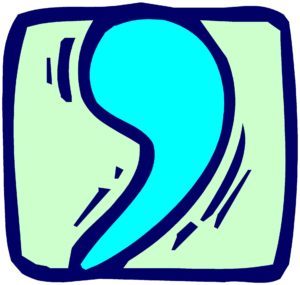

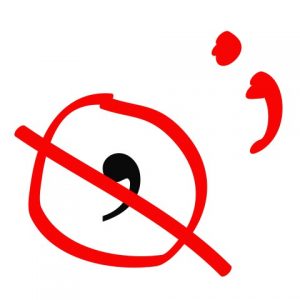





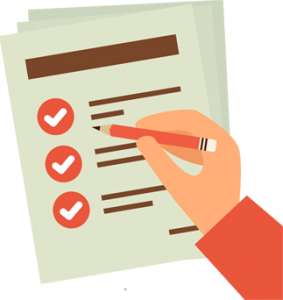


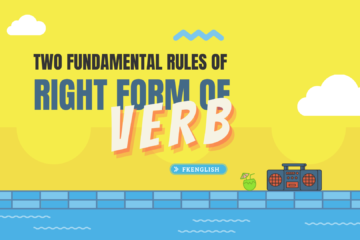

0 Comments